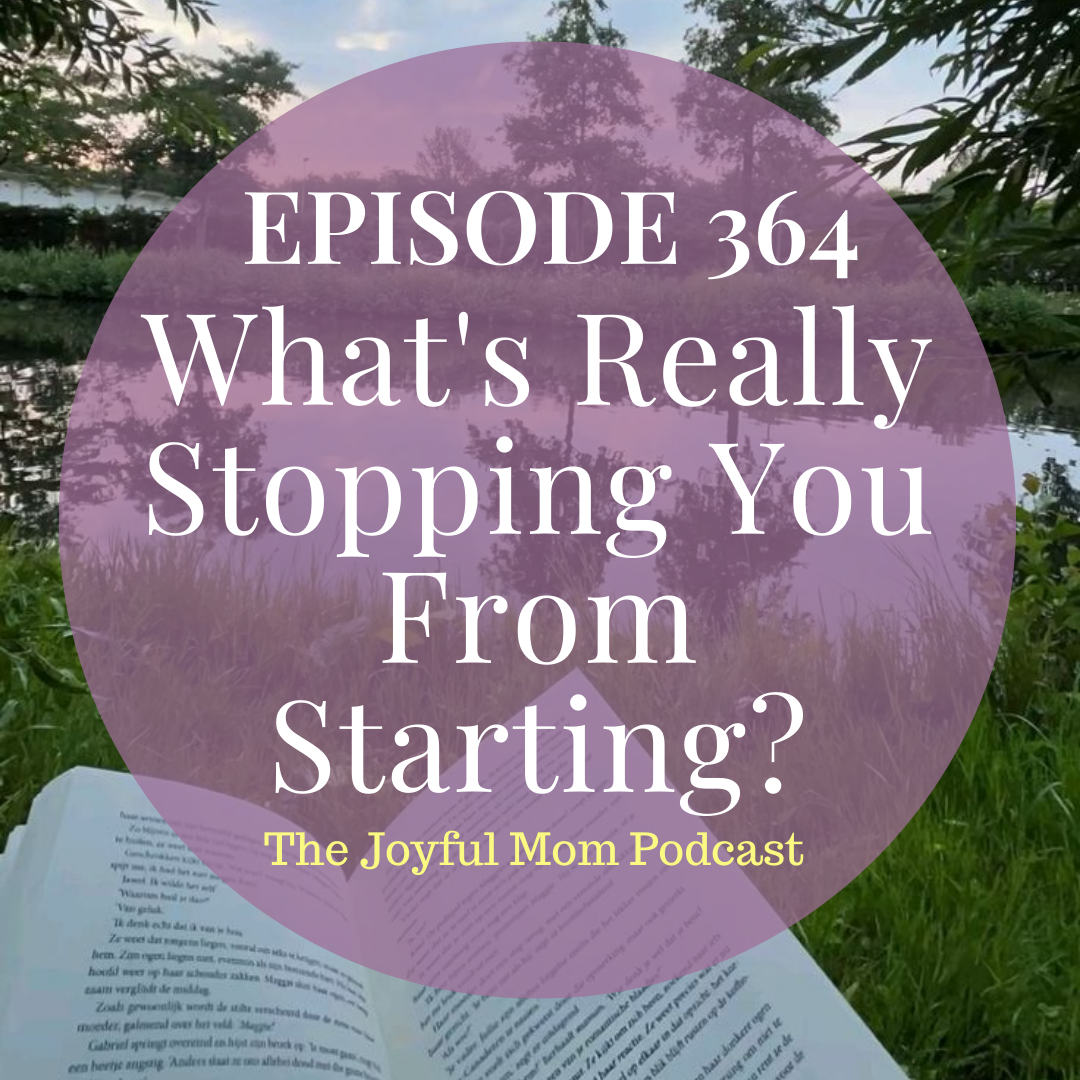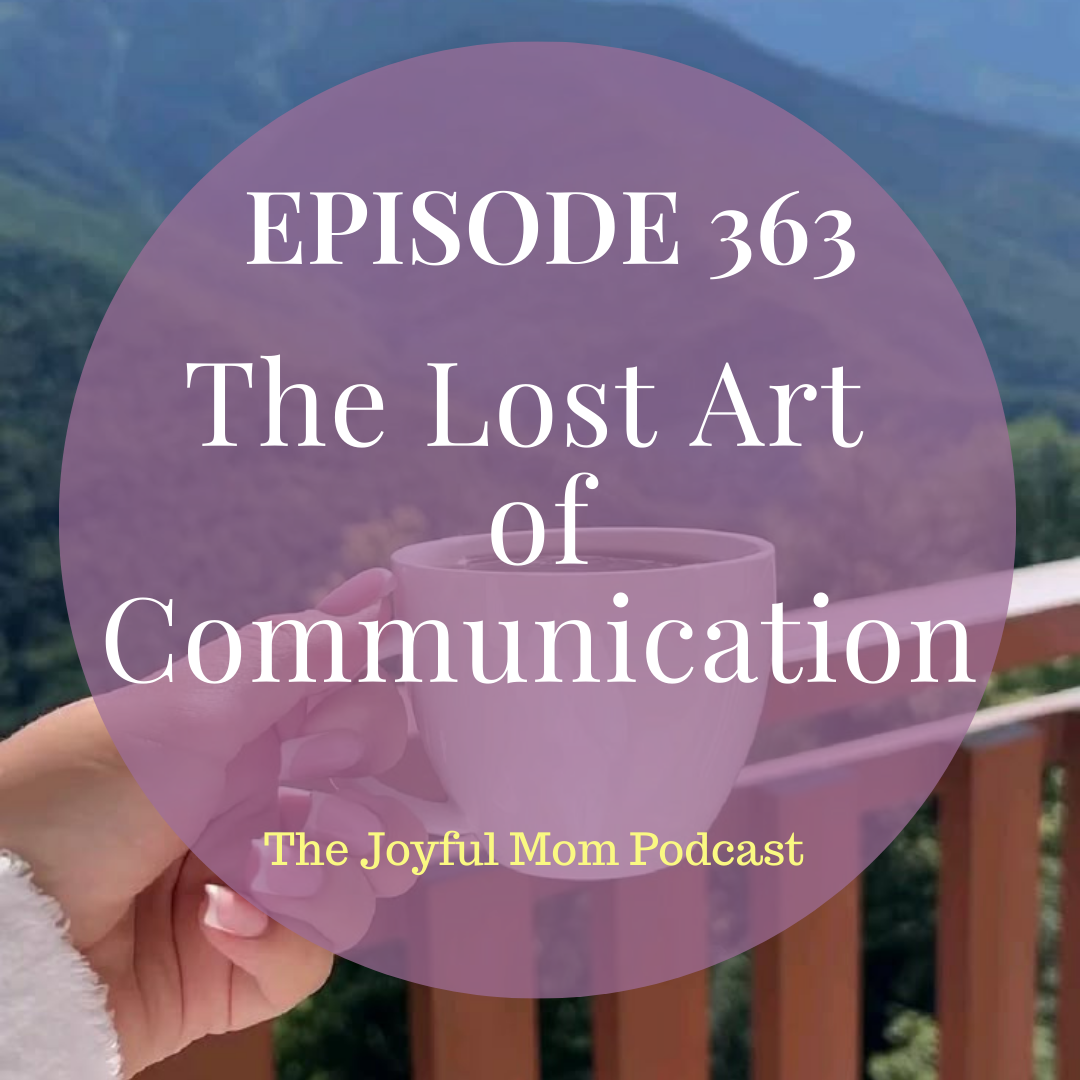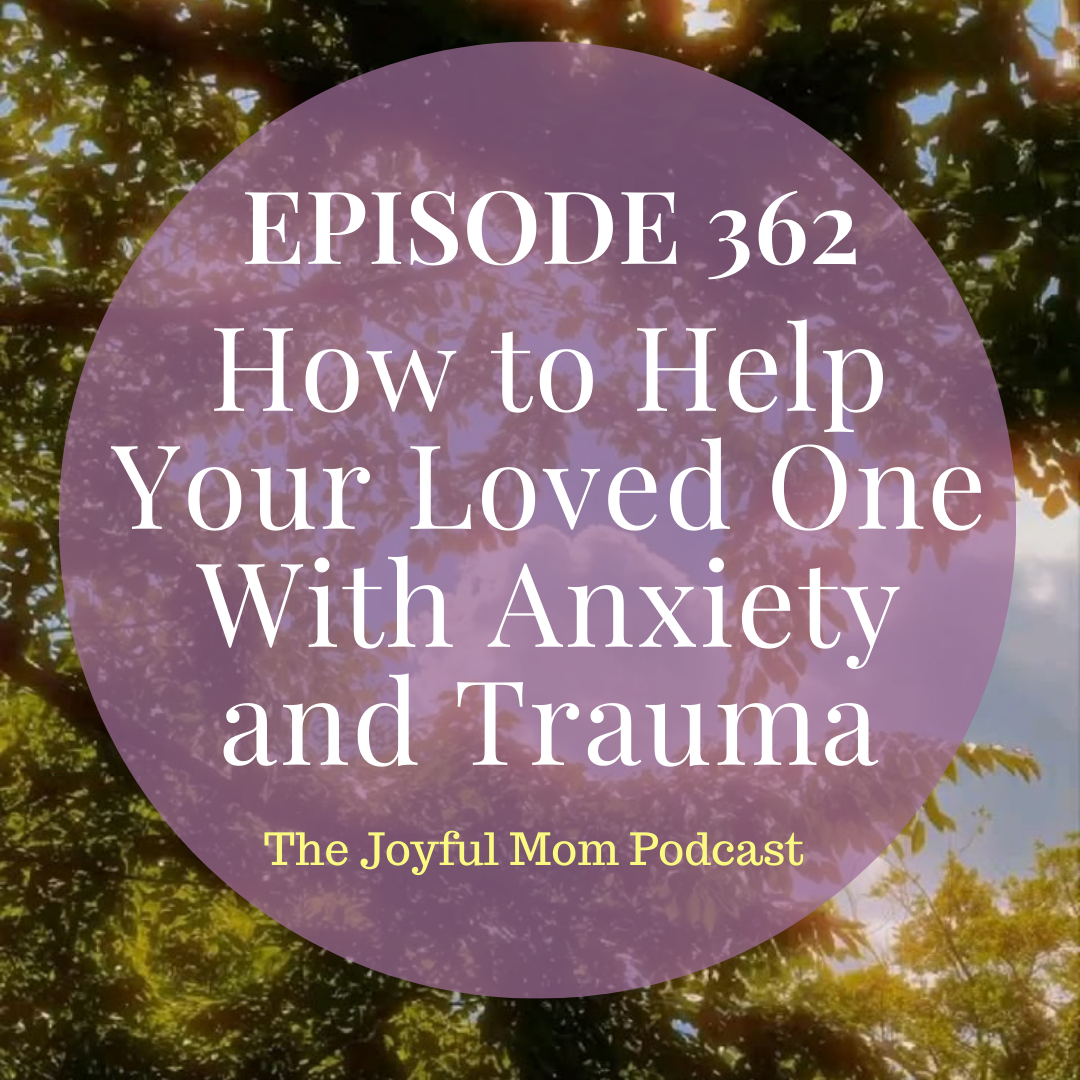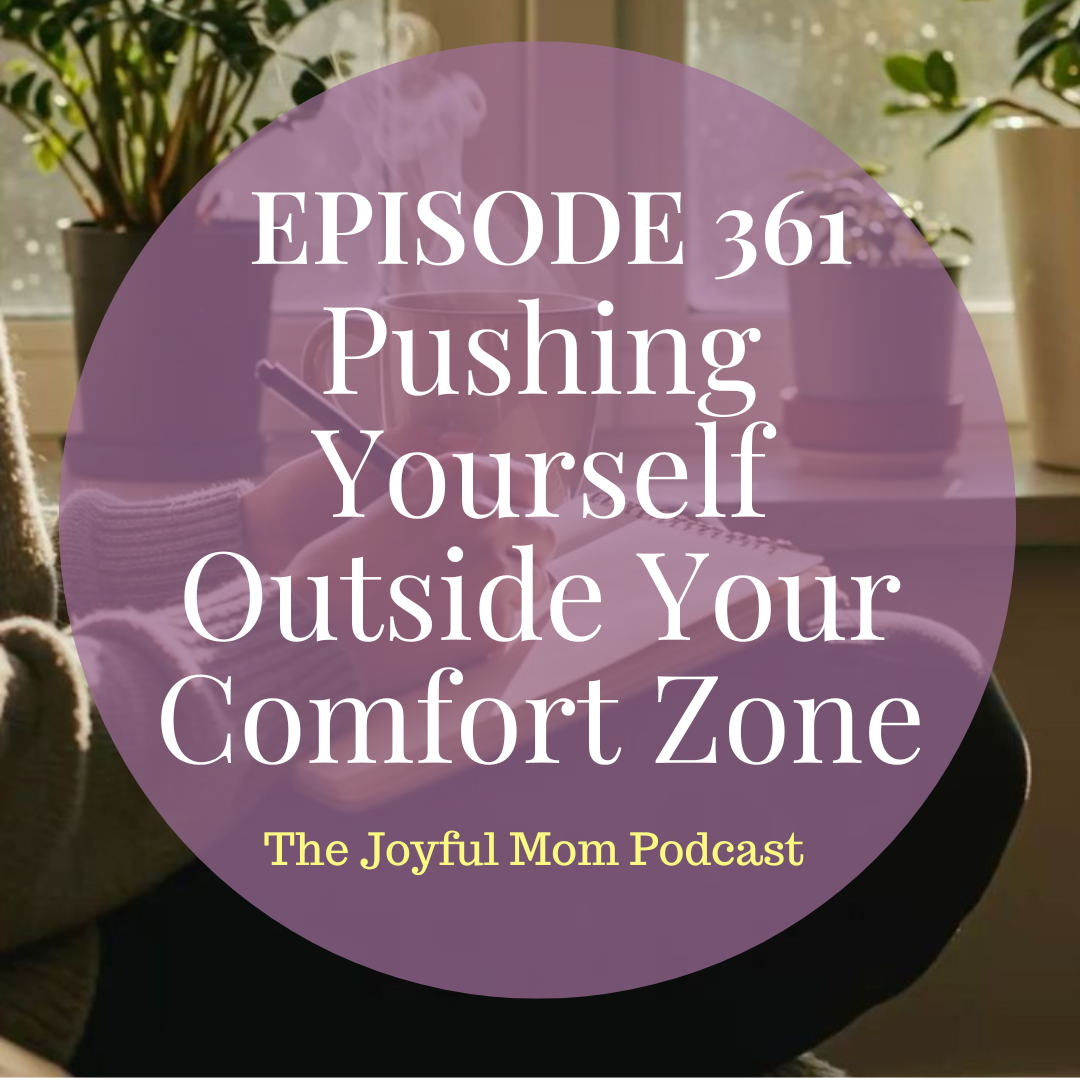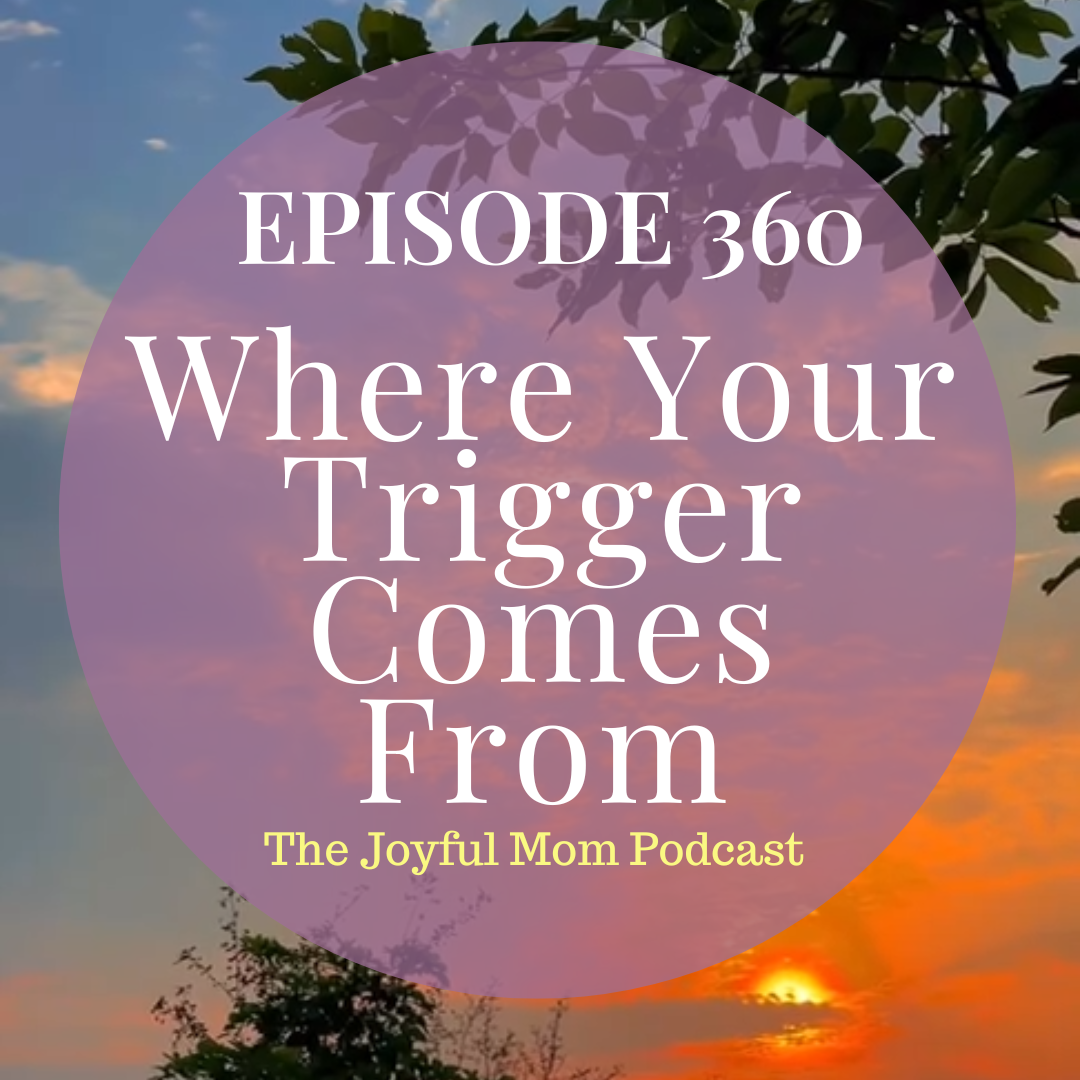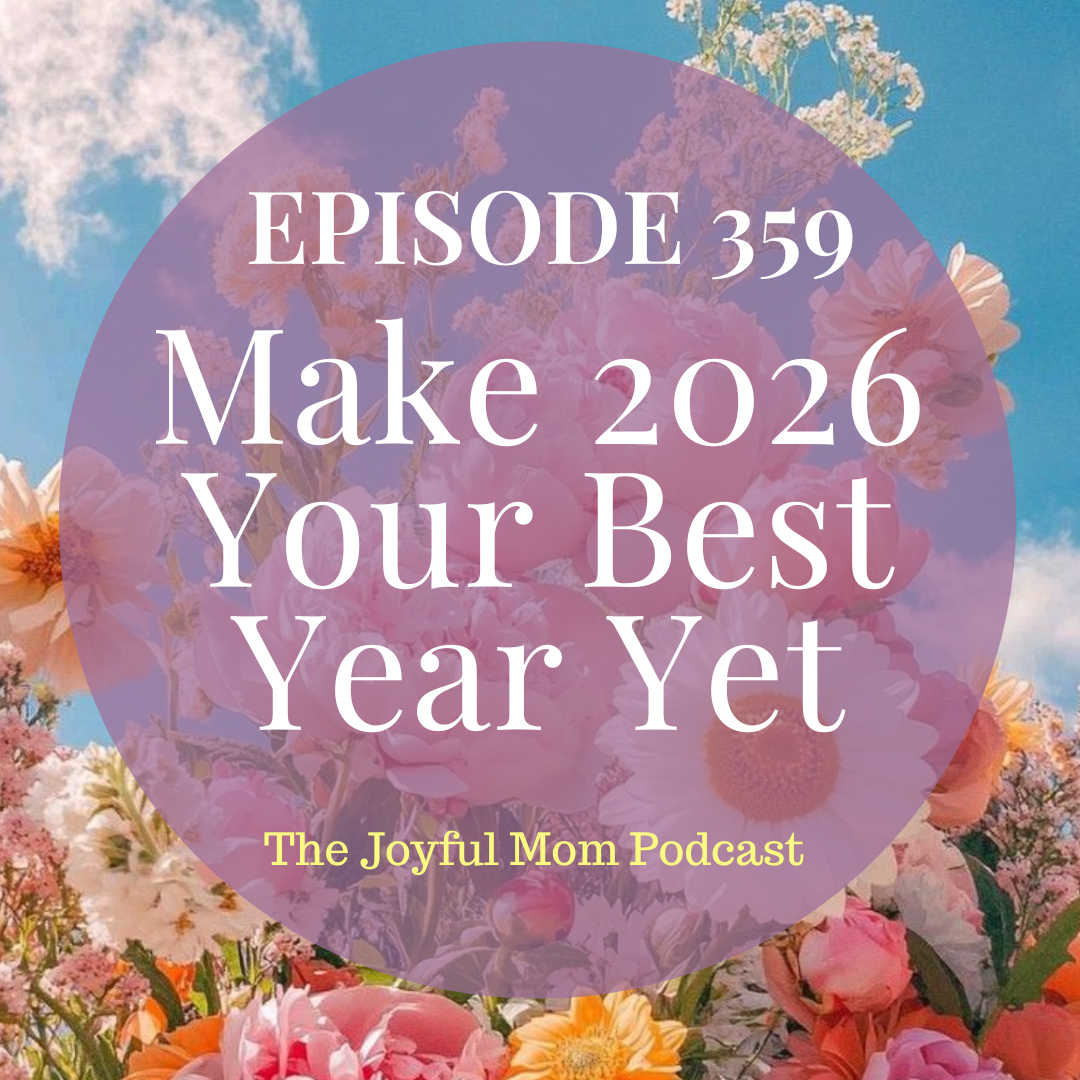272: When You're Feeling Stuck in an Emotion
I was just on a weekend away with some really good friends—a lot of them I’ve been friends with since childhood—and it was so fun to get together with these ladies that I’ve known for years and years. There is nothing like people who just get you. The perfect weekend for me is when we have laughs where tears are rolling down our faces and cries where tears are again there, and everything in between. It’s my favorite when we can share all of it—the joys and the sorrows—and get to the heart of where each person is in their life.
So, that’s the place I’m coming to you today. I am grateful for the amazing people I have in my life. So, today I am going to talk about emotions, but emotions from a different perspective. Today, we’re going to think about how to stay present amid emotions and how to not get overwhelmed by emotions.
If you are coming to this podcast today feeling very stuck in an emotion and you feel like you’re feeling so out of control with your emotions, and it’s hard to even think straight because you’re all consumed by the emotions you feel, you don’t even know what you think or who you are anymore, I hope to shed some light on this for you.
Maybe you’ve been believing that if you feel an emotion, it must be true. If you are feeling angry, you are justified in the anger, or you’re right, or if you’ve been feeling guilt and feeling stuck in the guilt, maybe you’ve been believing that you’re feeling guilty because you are guilty.
And here’s why this can be so detrimental, keeping you stuck in this emotion. When your feelings are in control and you’ve been believing that because the emotion is there, it must be true, you know, like people say all the time, listen to what you are feeling. But just because you are feeling something doesn’t mean it’s the truth. And it can be challenging to see clearly when emotion is blinding your vision.
If I gave you glasses while you were driving, they would be foggy. And with the emotion, you’re trying to drive with foggy glasses. When you’ve been driving with foggy glasses, you may have noticed that this has caused problems in your relationships, keeping you stuck in this emotion, spinning in it, and making you feel out of control, even though you’re trying to learn how to feel and process the emotions you’ve been experiencing.
So we all know emotions come into our lives. They are a normal experience we have. Especially with grief. When we experience an emotion, it will happen that an emotion connects with a belief, a thought, or something, and this emotion becomes true or justified.
So let’s think this way: emotions are there to cause us to do something. The mind causes the emotion to try to get you to do something. And often it can go this way: that emotion comes, and if the emotion turns on and you take the action, and then the emotion turns off because the action is completed, then the emotion is done. But what happens with emotions that cause a ton of pain and suffering? It’s like the emotion turns on; it’s trying to get you to take an action, and then it just keeps turning on because you can’t take the action it’s trying to get you to take. And that’s where the pain comes in. So it’s like if I was tapping you on the shoulder once or twice, it wouldn’t be a big deal, but if I kept tapping you on the shoulder for 2 months straight, your shoulder would be in significant pain.
When this happens, the foggy glasses cover the eyes; then you can’t see clearly, and you make all sorts of assumptions, guesses, and meanings of things when things are all foggy.
This is not the time to make decisions. And I want to offer some tips and tools to stay grounded and present, even while experiencing intense emotion.
Part of being able to automatically be grounded is to clear the fogginess off the glasses that you’ve been putting on. These glasses have been making it foggy. And this is kind of like the stuckness that happens in the mind. That keeps causing this emotion to come up because it’s trying to get you to do something for whatever reason. But when you can make an impact on the mind so that it stops causing this emotion, then the emotion automatically doesn’t happen, and the glasses are suddenly cleared. It’s when the mind fully gets it that it doesn’t need to cause the emotion any longer because the action can’t be taken, and then the mind stops causing the emotion.
Let me give you an example. Say it with anger. If we can think that anger is caused by the mind—to get you to bite really hard on something as a means of protecting you or your loved ones—the anger is only clouding your vision, right? When was the last time you needed to bite someone really hard, and would that solve the issue that’s happening? So if anger happened and you needed to take action, and then the anger turned off, what happens when anger is still there, when the event is no longer happening? The thing isn’t going on anymore, but anger is still happening. This is a part of being human, and while sometimes it can feel like the anger is justified or you need to feel the anger for some reason, do you think you could do more if you could see clearly through the glasses? If you’ve been experiencing anger, does the anger help with the situation? So, would it be better to clear the anger so you could see clearly? Then you can take the actions that you really want, rather than being controlled by anger and doing things blindly because of anger. Does this make some sense?
This is where a few R.R.T. sessions could significantly help with that.
That can help clear up some parts of the stuckness so it doesn’t continue to happen, but as emotional beings, and as emotions will keep coming up in your life, learning how to process and flow through the emotions, like when the emotion turns on, the action is taken, the emotion turns off, or the emotion is turned on, you recognize that the emotion turned on and that there is no action to take, you communicate that to your mind that there’s nothing to be done, and then the emotion can be turned off.
But learning how to separate emotions and thoughts while in the emotion, so that when you are feeling an emotion, even though you are thinking something in your head, you can identify that it’s not real in the moment even though it’s not real, did that even make sense?
So, if I’m feeling very angry, even though I’m feeling angry and thinking really horrible thoughts, I’m super aware in the moment as well that the thoughts I’m thinking are extreme; they aren’t true, and I know when the anger calms down, those thoughts won’t feel so true anymore.
What I believe helps cultivate this idea, is learning how to meditate. Learning how to be present with what is in your body, and learning how to notice thoughts in your mind without making meaning of the thoughts going through your mind.
I know I’ve talked about meditation a million times on here before, but I’d recommend you do it again. Try doing 5 minutes of meditation, just breathing in and out. If meditation is too difficult, for sure get a session of RRT, and then try to do meditation again. For me, it’s given me a greater sense of awareness of what’s going on in my body and given me that awareness, like if I’ve been really angry, to know that it’s anger and what’s going through my head isn’t true. So because of meditation and mindfulness practices, I am able to stay mostly calm and grounded, even though intense emotion is running through my body. This doesn’t mean I’m perfect or anything, but practicing meditation certainly has led to a more stable internal state, and even if it’s not very stable inside, at the moment I can know this is just an emotion; if I sit with it, it will flow through me. If I sit with the emotion, all these things in my head won’t feel so true anymore.
So, if I can suggest anywhere to start, just start with the 5 minutes of meditation. Set a timer for 5 minutes, and then just focus on your breath, going in and out. Follow your breath, and if you notice your mind wandering, that’s perfectly fine. It’s not about keeping your mind completely focused on your breath. Do you think your mind wants to be trapped and contained? Would you like that? No, the mind will not like that, so just notice and bring it back. It’s okay if it drifts off to somewhere else; all there is to do is keep bringing it back to your breath.
If you don’t really like focusing on your breath, for the next 5 minutes, you could just notice and become aware of each body part. And with the noticing, it’s like you're just looking at it and being with it. There’s nothing that you have to do. There are no judgments you have to make. In fact, the fewer judgments and the less worrying about how you need to fix or change something, the better. Just be in those moments, noticing your body. Noticing tension, tightness, or pain. And again, you can even think in your mind. Nothing needs to be done. You just sit with these sensations in your body, and you don’t have to do a thing about them.
Do that for 5 minutes if that feels better.
Truly, with both a session of RRT and these 5 minutes of awareness or meditation, you can begin to feel so much more grounded and calm in your body. And when you are more grounded in your body, you don’t have those out-of-control reactions and responses. Because you literally can’t control those at the moment because of the way your brain is wired. But bringing your body to a more aware state and connected to what’s going on in your body, and then clearing the reason why the mind is causing the emotion in the first place, will do so much for you.
I hope this helps, my friend! I am doing 2 sessions for clear anxiety for good at a discounted rate for the first 10 people; it will go up to the full price, but you can go to www.meganhillukka.com/beanxietyfree to sign up, and we can work together to really make a difference for you in this area.
Take care, my friends, and see you next week!
If you like this podcast and have found it helpful, I want to invite you to come check out Grieving Mom's Haven. This is my monthly community for grieving moms, where you can learn positive coping mechanisms. Find a safe space with others who understand and learn lifelong skills that support you as you learn how to carry this weight of grief in your life.
There are group coaching calls where we do guided meditations, tapping meditations, breath work, and just talk. Knowing that everyone in the group is also walking the path of child loss, you can come to check out Grieving Moms Haven at www.grievingmomshaven.com.
Have you felt anxiety after your child died?
The racing mind, unable to sleep, waiting for the next bad thing to happen, unable to breathe, panicky kind of anxiety, whole body riddled with anxiety?
Watch my free video on anxiety and grief below!
So that you can think clearly, feel calm in your body, and live your life without the chains of anxiety.

